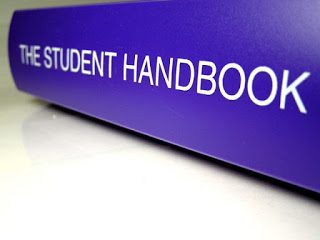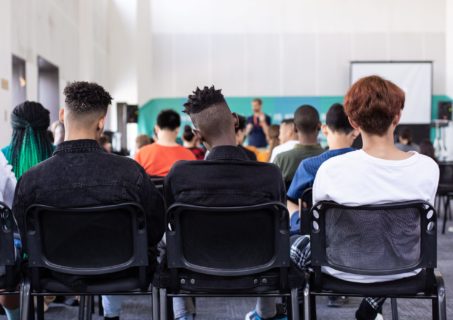Last Updated on July 27, 2022 by Michelle Ball
By Michelle Ball, Sacramento California Expulsion, Special Education, sports/CIF, College, Education and School Attorney/Lawyer for Students since 1995
College discipline hearings can be difficult matters, and they all start with the allegation and investigation of a student or situation. Due to the potential for severe punishment, it is important the initial college discipline meetings are not mishandled by a student under review.
Notice of Potential College Discipline

Usually the first notice of a discipline issue arrives via the student’s official college email, with an attachment telling the student to contact the college in a few days to set up a meeting. Often this notice indicates that if the student fails to reply, dire consequences may result, such as a hold on their university records or a denial of class registration.
There may be reference to a vague or unidentified allegation, so the student may not be sure what they are being accused of. Students should not ignore such college email.
University Meeting Will Be A Student Interview And Used Against Student
The first meeting will involve an interview of the students about the university’s allegations and what the student’s story is. As such, it is an important meeting which students need to prepare for. Most students just rush in to the discipline office and hope for the best.
Request More Details Prior to College Meeting
As the student may have no idea why they are being investigated, a polite inquiry should be made to attempt to get more detail on the allegations.
If the staff say “you will find out at the meeting,” the student can still respectfully ask if they may be provided with information on the context and what codes the student is alleged to have breached, if this was not included in the initial notice
The student can also request copies of any “evidence” which has been gathered and see if they can obtain this prior to the initial discipline meeting.
Seeking Help with Discipline Process
Colleges may have a student advocate office or other similar office which a student can contact to get some input and advice about local practices. This may also be the time to seek input from family members, such as a student’s parents (if the student is comfortable with that), or potentially other sources, to be prepared.
Although legal counsel may be denied entry to investigation meeting(s), a lawyer can still be consulted outside the meeting.
Review Relevant College Rules and Codes

The student should review the college codes as well as any discipline policies the college has published which may apply.
For example, at the University of California, Davis (UCD), there are many policies on their “Office of Student Support and Judicial Affairs” page, including a link to current policies and procedures applied in college discipline matters. The Student Judicial Affairs, aka SJA, office at UCD is the office that handles student discipline and hearings.
Not all colleges, unfortunately, have adequate information on line, or even adequate policies, but it is definitely worth the time to learn what may be out there before the first meeting.
It is important to remember that whomever a student may meet with during the investigation has a lot of experience in punishing students and far more knowledge in this area, usually, than the student, so preparing is critical.
Initial Interview of College Student at Meeting
At the initial college discipline meeting, the student will be interviewed, and will hopefully be fully informed of the allegation, context, and university codes allegedly breached. The student may be asked to admit what happened. Or, the student may simply be told that the college will be investigating and will get back to them for a follow up meeting.
It is never certain what will happen with discipline allegations, but I have found that colleges tend to believe the accuser, not the accused student, so students should be prepared for being doubted and cast as someone who has done wrong. This is despite telling college staff the truth and/or providing an honest, heartfelt denial of any allegation.
Follow-Up College Meetings
Other meetings with the college discipline office may follow if they want more information, additional interviews or the student wishes to provide evidence to try to show their innocence or lessen culpability. Students need to remember that every meeting and what is said can be used against them to expel or suspend them.
Students Can Refuse University Interviews
Students may refuse to be interviewed. In that case, the matter usually will go straight to a discipline hearing.

College Officials Know What They are Doing
Additionally, even though the university staff member who interviews a student may sometimes seem like a very sweet, kind, and understanding person, that is part of their method of obtaining information and data they may be able to skew or use in a discipline hearing against the university student.
It is best not to forget the nice person interviewing the student is on the other side, likely trying to prove the student “did it,” and is the one who may make recommendations on student punishment.
It is a bit tricky.
College discipline investigations should be approached in a methodical and prepared way so a university student can help themselves navigate these tricky waters to keep pursuing their degree.
College student discipline lawyer Michelle Ball helps university, community college, UC, CSU, trade and private college students with expulsion, suspension, academic and other college problems. Located in Sacramento, California, she can assist students statewide in places such as Santa Cruz, Redwood City, Chico, Los Angeles, Riverside, Bakersfield, Roseville, Walnut Creek, and many other locations.




